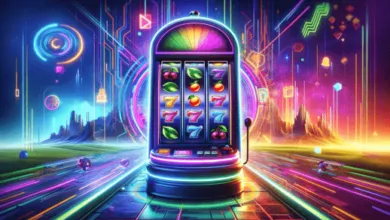The Hidden Influence of Gambling Mechanics in Open-World Video Games

Open-world games have come a long way since the pixelated landscapes of the early 2000s. Today, they offer sprawling cities, fully voiced NPCs, dynamic environments, and hundreds of hours of exploration. But beneath their sophisticated surface lies a curious trend: the creeping influence of gambling-style mechanics subtly integrated into these vast digital playgrounds.
The Rise of Risk-Reward Loops in Gaming
Games likeRed Dead Redemption 2,Cyberpunk 2077, andGenshin Impactall contain systems that mimic gambling: randomized loot, lucky item drops, and even in-game casinos. These features are often framed as “exploration rewards” or “chance encounters,” but their psychological function is similar to what’s found in gambling—specifically, the intermittent reinforcement loop.
Players keep playing, not because they’re guaranteed a reward, but because they might get one. And that “might” is a powerful motivator.
Not Just in the Code: Cultural Reflections
It’s not just game mechanics—it’s game worlds, too. Many open-world titles now feature gambling as a literal part of the in-game environment. You might find a poker game inGTA V, a slot machine inYakuza, or a blackjack table inFallout: New Vegas. These inclusions add realism, but they also normalize gambling within entertainment ecosystems.
Of course, this trend has a real-world counterpart. Online platforms likebintang11 slotmirror many of the elements we see in modern gaming—customizable themes, progression systems, and immersive user interfaces. The overlap between entertainment and chance is growing thinner.
Why This Matters for Game Design
The inclusion of gambling-style mechanics isn’t inherently bad. After all, risk is part of what makes games exciting. But it does raise important questions:
- Where’s the line between reward and manipulation?
- At what point does a “fun bonus system” become a trigger for compulsive behavior?
- Should players be made more aware of how chance-based features are designed?
Understanding these dynamics is especially important for younger players or anyone vulnerable to addictive patterns. Developers are increasingly being called upon to strike a balance between challenge and fairness, surprise and transparency.
Gamers Are Getting Smarter
The good news? Gamers are catching on. Many now scrutinize game mechanics with a critical eye. They ask whether a loot system is fair, whether paid items are cosmetic or pay-to-win, and whether the grind is part of the experience or a monetization trap.
This shift in awareness is also encouraging developers to rethink how they structure randomness and rewards. Some are even turning to models whereluckplays a role butchoicestill matters—a philosophy not unlike the emerging trends in platforms such as bintang11 slot.
Final Thoughts
The open-world genre isn’t just evolving in terms of graphics and scale—it’s evolving in how it engages players psychologically. As gambling-inspired systems continue to find their way into even the most story-driven adventures, players will need to be more mindful of the lines between play and compulsion.
Understanding these influences can lead to better games, smarter design choices, and more conscious gaming habits. After all, video games are more than entertainment—they’re systems of feedback, risk, and reward. And the better we understand those systems, the better we can enjoy them.



